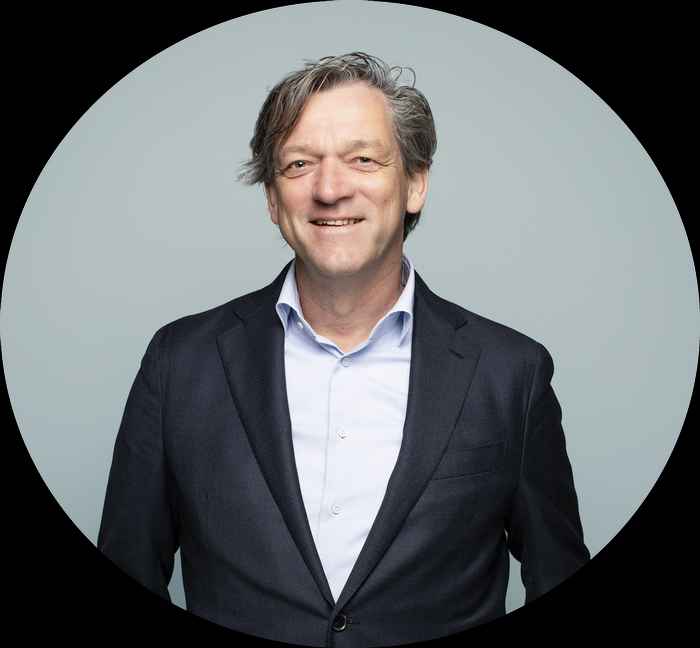'When judges succumb to external pressure, we have failed as a democracy'
Amsterdam Law School
30 April 2024

Janssen has high-profile cases behind his name as a criminal judge, with public figures like Willem Engel and Richard de Mos in the dock. 'I'm not at the forefront of doing cases like that either. I have a young family,' he says about those cases. 'But judges should not be influenced or discouraged.'
How far do you expect judges to go in putting their safety on the line?
'Unfortunately, as far as necessary, you need to stick to your guns. If judges succumb, democracy has failed. Therefore, they must be protected, which is going quite well. Some judges suffer threats and have to make sacrifices because of their safety. They are great sacrifices, but they are for a great cause.
What do you mean by sticking to your guns?
'As a judge, you must withstand external pressure from politics and society. It has become more important to be able to do that because you can receive a lot of criticism through the press and social media. I have also experienced that.'

Inclusion is the magic word in society, except if you are a suspect
As a criminal judge, have there ever been security measures taken for you?
‘No, I have not been directly affected by that. I have occasionally been in “the bunker” and other extra-secure courtrooms because of security. But I never really felt unsafe. Once, someone took pictures of me with my son on my bike during a case. Of course, that was uncomfortable, and I felt my privacy was violated. Yet, oddly enough, I also understood why he did that: he wanted to know who was handling the case. I am sometimes called the "judge close by," and I value that. I say what I think, and people appreciate that.’
What makes criminal justice vulnerable at the moment?
'The position of suspects is a thorn in my side. The suspect has become trapped in the "retribution carousel" we are in. Politics and society seem to want harsher punishments, and that comes at the expense of the "ordinary" suspect. I understand the urge because organized crime is a big problem. But it also affects the ordinary cases. We need to restore the position of the suspect. Inclusion is the magic word in society, except if you are a suspect. They're placed outside society and have to pay. We must be mindful of other sentencing goals: prevention, resocialization and rehabilitation.'
How do you get a suspect to participate again if they must also be punished?
'Suspects often remain silent on the advice of their lawyer. That is something from the last few decades. This is unfortunate because the suspect has often been at the crime scene and knows what happened there. That could make them a good witness. In Rotterdam, we started a procedure that gave suspects more room to speak. The message is: if you are willing to look at the future, so are we. It works by making that very explicit and bringing it forward in the process. If they speak up, it doesn't necessarily lead to a lower or higher sentence, but it does lead to one with prospects.'

If the fear of safety is a big obstacle in the mind of a young judge, then we don't really need you
The high workload is often mentioned as a bottleneck in the system. Does the workload make for a vulnerable criminal justice system?
'We should not exaggerate. Yes, we have too few judges, we are overloaded, and cases are sometimes dismissed. But we can still cope. As a judge, I am still responsible for what happens. I can say I need more time for a case. It requires a new role for the judge in 2024. You need to work with digital files to work faster and better. We must innovate, be critical of procedures, and be more assertive.'
Be more assertive?
'Judges have to be brave and make choices. Otherwise, you become vulnerable. That includes saying what you think. Sometimes, we let parties babble and say, "Yes, yes." It's better to tell a defendant, lawyer, or prosecutor, "I don't understand you, so explain it better." The judge is a funnel, I call it.’
Are these realistic requirements? Judges must be assertive, brave, innovative, and able to deal with threats. That's a tall order.
'I make high demands of a judge, but it can also be done. Of course, as a young judge, you don't immediately qualify for complicated cases. But if the fear of safety is a big obstacle in the mind of a young judge, then we don't really need you. You have to be a jack-of-all-trades; we select judges for that. After all, it's quite a job. It is socially relevant, and there is pressure, but I can't think of a better job.'